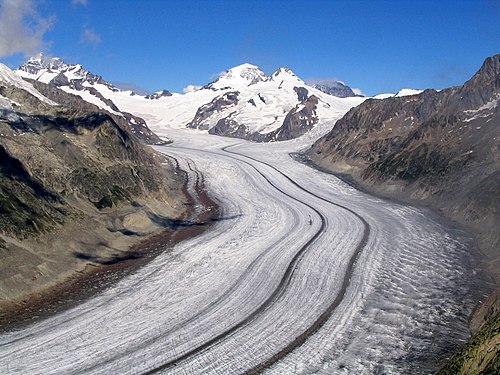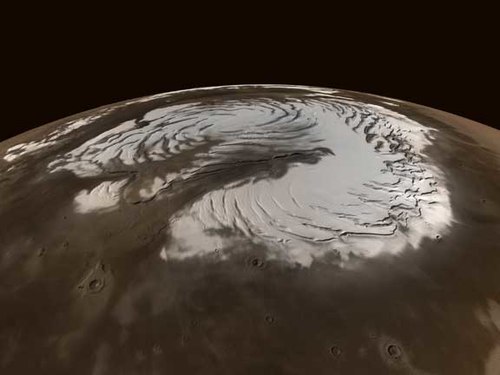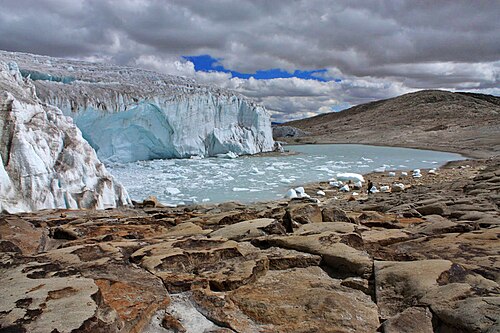Glaciernoun
(geology) A large body of ice which flows under its own mass, usually downhill.
Glaciernoun
An immense field or stream of ice, formed in the region of perpetual snow, and moving slowly down a mountain slope or valley, as in the Alps, or over an extended area, as in Greenland.
Glaciernoun
a slowly moving mass of ice
Glacier
A glacier (US: or UK: ) is a persistent body of dense ice that is constantly moving under its own weight. A glacier forms where the accumulation of snow exceeds its ablation over many years, often centuries.
Icebergnoun
A huge mass of ocean-floating ice which has broken off a glacier or ice shelf
Icebergnoun
An aloof person.
Icebergnoun
An impending disastrous event whose adverse effects are only beginning to show, in reference to one-tenth of the volume of an iceberg being visible above water.
Icebergnoun
A large mass of ice, generally floating in the ocean.
Icebergnoun
a large mass of ice floating at sea; usually broken off of a polar glacier
Icebergnoun
lettuce with crisp tightly packed light-green leaves in a firm head;
Icebergnoun
a large floating mass of ice detached from a glacier or ice sheet and carried out to sea.
Iceberg
An iceberg is a large piece of freshwater ice that has broken off a glacier or an ice shelf and is floating freely in open (salt) water. Small bits of disintegrating icebergs are called or .Icebergs calved by glaciers that face the open sea, such as in Greenland, are irregular shaped piles.






































